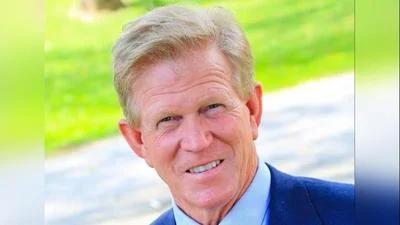Shelbyville board exposed in conflict of interest | Courtesy of Shutterstock
Shelbyville board exposed in conflict of interest | Courtesy of Shutterstock
Shelbyville Township’s electoral board recently encountered roadblocks involving its own road commissioner, who filed objections to a third party’s motion for disqualification — itself alleging that certain board members have potential conflicts of interest.
Prior to the most recent electoral board meeting, Shelbyville resident Brad Halbrook had presented a motion to disqualify, based on the argument that two board members may be inherently biased because they are running for seats on the board and therefore may have a personal interest in the outcome of the hearing.
Halbrook’s motion sparked objections from Road Commissioner Robin Robertson, who also happens to be on the Planning Commission, which led to its latest gathering.
Edgar County Watchdogs (ECW) commended Halbrook’s action, averring that the board members are clearly disqualified by state law. Section 10-9 of the Illinois Election Code (10 ILS 5/10-9) addresses “members of electoral boards, disqualification of those members and appointing substitutes for those disqualified” as follows.
“In the event that any member of the … board is a candidate for the office with relation to which the objector’s petition is filed, he shall not be eligible to serve on that board and shall not act as a member of the board and his place shall be filled,” according to the statute. “Any vacancies on an electoral board … shall be filled by public members appointed by the chief judge of the circuit court for the county wherein the electoral board hearing is being held upon notification.”
The watchdog organization concurred that “two of the members can’t hear objections because they have an interest in the outcome, since they are also running for seats on the township board.”
ECW Principal Kirk Allen, who attended the hearing and witnessed the procedure, observed that “the attorney for the electoral board appeared to agree with the law, however, was silent on the matter until it was raised.”
Allen said that the lawyer’s silence raised a further question about why she did not advise the board of the conflict before the hearing was even called. But he expressed satisfaction with the chairman’s handling of the scenario.
“The chairman … did the correct thing and acknowledged the disqualifications and will be sending a letter to the chief judge so that they can establish the new board,” Allen said. “We commend them for doing the right thing once again.”
EWC recently praised the same township board for agreeing to postpone a public meeting when it became clear that members were out of compliance with administrative requirements.
At that time, ECW’s John Kraft arrived for an electoral board meeting in order to hear a petition objection but discovered improper meeting notice procedures.
When Kraft immediately observed that neither a notice nor an agenda had been posted on the premises — rendering the gathering out of compliance with Illinois’ Open Meetings Act (OMA) — Shelbyville Township officials cordially agreed to delay the meeting as a consequence of ECW’s intervention.
Now, Allen has agreed that the Shelbyville Township Electoral Board must seek out the chief judge of the circuit court and have the court appoint community residents to establish a new electoral board.
In addition to filing the motion to disqualify, Halbrook addressed what he perceived to be a lack of existing rules concerning electoral board hearings, spurring debate between himself and the electoral board’s attorney during the meeting.
ECW observed that the board attorney's dismissal of a point made by Halbrook about timeline compliance may have been inconsistent with state law and court opinions. When the attorney interrogated Halbrook about details, Allen intervened by asking the chairman to continue the meeting.
Following subsequent discussion, the board unanimously opted to grant Halbrook’s motion to disqualify. Results were then communicated to the chief judge of the circuit and to the chief judge of Shelby County.
As a result of Halbrook’s successful motion, all parties anticipate the appointment of new electoral board members.
The electoral board meets at 212 E. S. First St. Shelbyville serves as the county seat for central Illinois’ Shelby County.






 Alerts Sign-up
Alerts Sign-up